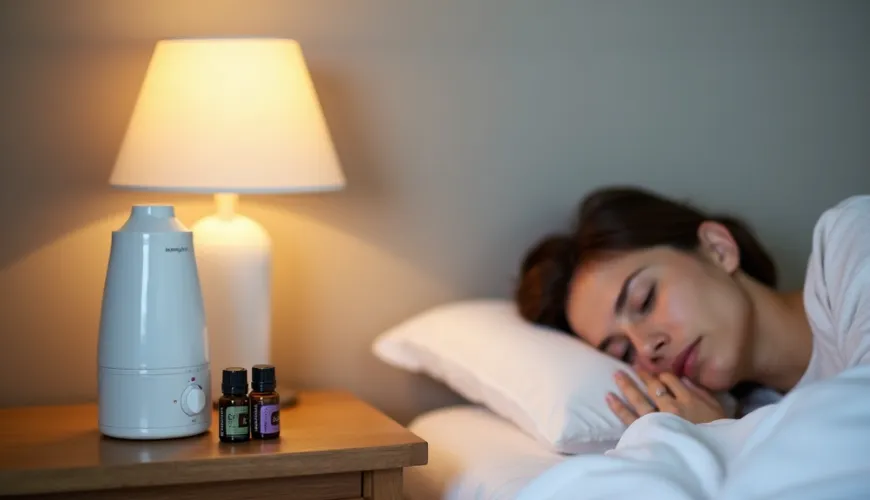
Find out what causes nasal snoring and how to address it

When Night Isn't Restful - What Causes Nasal Snoring and How to Reduce It
Snoring is one of the most common nighttime problems that bothers not only the sleeper but also those around them. While some perceive it as just an annoying sound, for others, snoring can be a sign of more serious health issues. Most people associate snoring with the mouth – the typical deep, resonant sounds that accompany an open mouth. Less known, but just as common, is the phenomenon where a person snores through the nose. And this type of snoring deserves greater attention.
Why Do We Snore and What Role Does the Nose Play?
Snoring occurs due to the narrowing of the airways. As air passes through this narrowed space, it causes the soft tissues to vibrate, creating the typical snoring sound. When the cause is a narrowing in the nose, it's called nasal snoring – and although it's quieter than mouth snoring, it can be just as bothersome.
Nasal snoring is often caused by a blocked nose, sinus inflammation, allergies, or even anatomical defects like a deviated septum. In some cases, it may be a temporary problem – for example, during a cold or allergy season. For others, it can be a long-term condition that significantly affects sleep quality.
Interestingly, even people who normally breathe through their nose without any issues may start snoring at night due to changes in body position or muscle relaxation during sleep. When lying down, for example, the nasal passages can narrow and the airflow slows, which can lead to nighttime nasal snoring.
When Is Snoring a Sign to Seek Medical Help?
While occasional snoring can be harmless, regular nighttime snoring should not be ignored. It may signal problems such as sleep apnea – a serious condition where breathing repeatedly stops during sleep. Although nasal snoring is not usually associated with apnea as often as mouth snoring, they can be related in some cases.
According to the Czech Society for Sleep Research and Sleep Medicine, an estimated 30% of adult men and 20% of women suffer from some form of snoring. Although most do not seek medical help, long-term snoring – including nasal snoring – can lead to daytime fatigue, irritability, and reduced concentration ability.
How to Reduce Nasal Snoring Naturally?
The good news is that in many cases, nasal snoring can be significantly reduced or completely eliminated without medication. The key to success is to identify and eliminate its cause. Sometimes, small lifestyle changes or home remedies are enough, while other times specialized aids are needed.
One of the most common culprits is dry and dusty air in the bedroom, which irritates the nasal mucosa. In this case, a humidifier or essential oils with relaxing effects – such as eucalyptus or lavender – can help. Regular ventilation and maintaining a clean environment free of dust and mites can also have a positive effect.
Another important factor is sleeping position. People who sleep on their backs are more prone to snoring because the tongue can slide backward and block airflow. Sleeping on the side or using special pillows can alleviate this issue.
A blocked nose can also be a result of allergy to pollen or household dust, so it's worth trying natural remedies to reduce allergic reactions – such as syrups and teas with nettle, calendula, or chamomile, which can help soothe the mucosa.
Snoring Aids and What to Expect from Them
For those for whom environment changes are not sufficient, practical aids are available. For example, nasal dilators, small silicone or plastic inserts that are placed in the nostrils to mechanically widen the nasal passage. The result is better airflow and thus a reduced risk of tissue vibrations. Many users report that this simple aid significantly improved their sleep quality.
In some cases, nasal sprays with sea salt can help keep the nasal mucosa moist and clear. It is important to choose gentle, natural products without chemical additives. Short-term use of decongestants, or medications to relieve a blocked nose, can also be effective, but long-term use can lead to dependency and worsen the condition of the nasal mucosa.
A Life Story - When a Quiet Night Is No Longer a Given
Marie, a teacher from Brno, long wondered why she felt tired and irritable every morning despite sleeping eight hours a night. “My partner told me that I make a strange snorting sound at night, but I wasn't aware of it. It wasn't until we recorded our sleep that we found out that I regularly snore – through my nose." Marie eventually visited an ENT specialist who discovered a deviated septum. “After surgery, my breathing completely changed, and so did my sleep quality. I no longer wake up tired," she says with a smile today.
This story shows that even seemingly inconspicuous problems like nasal snoring can have a significant impact on everyday health and well-being. Therefore, if a person regularly snores, it's not shameful to seek a specialist. On the contrary – it can be the first step to a better quality of life.
When Nature Helps You Breathe Freely
In the field of natural respiratory care, more attention is being given to herbal blends, aromatherapy, and eco-friendly products that respect the body's natural functioning. Today, the market offers options like bio nasal oils that help hydrate the mucosa, or inhalers with essential oils designed specifically to clear nasal passages.
Brands focused on eco-friendly households and a healthy lifestyle – such as Ferwer – offer a wide range of natural products that can help not only with snoring but also enhance overall sleep enjoyment. And quality sleep without disruptive sounds is one of the cornerstones of a healthy life.
As American doctor William Dement, a pioneer in sleep medicine, said: "Sleep is not a luxury, it's a biological necessity." And that's why we shouldn't ignore anything that disrupts it – not even nasal snoring, which often seems inconspicuous but can have a big impact on our health.
Maybe it's time to look forward to the night again. Without snorting, sniffling, and sleepless mornings. Just take the first step – start breathing freely.

